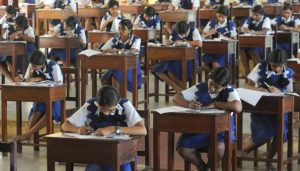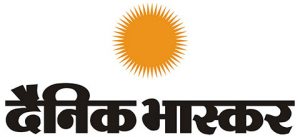
06-07-2017 (Important News Clippings)
To Download Click Here.
Israel: Formalising a warm partnership
ET Editorials
It is no surprise that innovation, water, agriculture and terror dominated discussions. Israel is a leader in conservation and efficiency of water use, and improved agricultural productivity. These are crucial areas for India, and priorities for the government given its goal of doubling farmer incomes by 2022. The growing pressures on water exacerbated by climate change and rising demand make this an important sector. The $40-million bilateral technology innovation fund in industrial development will help augment R&D and create a framework for partnership by Indian and Israeli researchers.
The lacunae in India’s cyber defences should be a priority area of joint research. Terror is the other big-ticket issue. Mindful of India’s relationship with countries in West Asia and the Gulf region, the joint statement does not specify any particular source of threat to peace and stability. Instead, it stresses on cooperating to combat growing radicalisation and terrorism, including cyber threats. The joint statement stresses on reliance on dialogue and restraint.This visit does not signal India picking sides in the Israel-Palestine conflict. India remains committed to a resolution that is democratic and that ensures the rights of the Palestinians and Israelis are protected. In engaging with Palestine and Israel as separate entities, New Delhi has created the space to play honest broker should it choose to do so.
सहयोग संभावनाएं
संपादकीय
भारत और इजरायल के बीच कूटनयिक संबंध 1992 में स्थापित हुए। उसके बाद से दोनों देश निरंतर बहुआयामी साझेदारी का हिस्सा बने हैं। नरेंद्र मोदी पहले भारतीय प्रधानमंत्री हैं जो इजरायल की यात्रा पर गए हैं। इजरायल के प्रधानमंत्री बेंजामिन नेतन्याहू के साथ उनकी मुलाकात के बाद यह माना जा सकता है कि वृहद आर्थिक प्रबंधन, व्यापारिक उदारीकरण, पर्यावरण संरक्षण और निवेश के मोर्चे पर दोनों देशों के बीच आपसी सहयोग और अधिक गहरा होगा। यह मुलाकात द्विपक्षीय कारोबार और निवेश को भी बढ़ावा देगी जो अन्यथा ठहरा रहा है। उदाहरण के लिए दोनों देशों के बीच रक्षा संबंधों में विस्तार की पूरी गुंजाइश है। तथ्य यह है कि भारत दुनिया में रक्षा उपकरणों के सबसे बड़े आयातकों में से एक है और इजरायल दुनिया के सबसे बड़े चार निर्यातकों में शामिल है। इससे यह संकेत साफ है कि यह गठजोड़ भविष्य में और अधिक मजबूत हो सकता है। दोनों देशों के बीच रक्षा और आतंकवाद उन्मूलन कार्रवाई के लिए ड्रोन और अंतरिक्ष प्रौद्योगिकी में सहयोग की मदद से आपसी रिश्तों को और मजबूत किया जा सकता है। लेकिन राजनयिक और सामरिक रिश्तों से इतर मोदी की तीन दिवसीय इजरायल यात्रा और अधिक फलदायी हो सकती है, बशर्ते कि यह खेती और जल प्रबंधन तकनीक जैसे क्षेत्रों में भी द्विपक्षीय सहयोग पर ध्यान दे। ये वे क्षेत्र हैं जहां इजरायल को भारी बढ़त हासिल है।
चीनी विस्तारवाद के खिलाफ राजनयिक सक्रियता जरूरी
संपादकीय
In Defence Of Esoterica
Lack of high-end research has a cascading effect. It impacts people’s earning abilities
M. Rajivlochan The writer is member, State Higher Education Council, Chandigarh and director, Internal Quality Assurance Cell, Panjab University

If that happens, we can effectively bid goodbye to being a society committed to whatever little higher order learning that is happening in India. Could it be that in the absence of high-end research, not much exciting investigation seems to be happening at the lower-end of the research spectrum? And are we, as a society, giving up on formal learning in the misguided belief that if such learning is not insightful or exciting then why waste time on it? Data does suggest that this might be the case. The All India Survey of Higher Education says that in 2016, about 17 per cent of those who graduated from India’s colleges took a BSc degree, 15 per cent went in for an engineering degree, 11 per cent studied commerce, 3 per cent passed out with a medical degree and about 1 per cent studied law. Some 3.9 million graduates, half of the total number, preferred a BA degree. Whether this large mass of Indian BAs are making Indians better human beings is not yet known. What is known is that it is not enabling them to be wealth creators. What we also know is that young Indians do not seem to be particularly excited about taking the technical kind of education that primarily creates wealth.
Surely, such people end up as part of the workforce. On that count too there are many surprises. The 66th round of survey by NSSO, found that only 2 per cent of the Indian labour force had any formal technical education. Common sense suggests that they might have learnt something on the job, some of them might have acquired skills simply by working under an ustad or there might have been hereditary skills imparted by the much-touted caste system in which children take up the profession of their fathers.
Statistics also show that about 5 per cent of the workers have acquired skills commensurate with their work through informal sources or through self-learning. Only about 7 per cent workers had exposure to any work-related education, whether formal or non-formal. Such absence of knowledge and skills may or may not result in potentially harmful workmanship. But at the level of the worker, it certainly lowers earning ability.Those with a diploma or certificate, the NSSO survey suggested, earned considerably more as compared to their uneducated and unskilled co-workers. In agriculture, the skilled worker earned 31 per cent more than his/her peers. In trade, the increment was 36 per cent, it was 64 per cent in mining and quarrying, 80-95 per cent in manufacturing and in the construction sector a more knowledgeable worker ended up earning twice as much. The earnings of those without any formal learning were so low as to put them close to the official poverty level in the country.Could it be that to boost Indians’ interest in formal learning, the high-end researchers need to ramp up their efforts, work on exciting problems, create electrifying results, demonstrate the importance of their conclusions, enthuse people towards formal learning?





